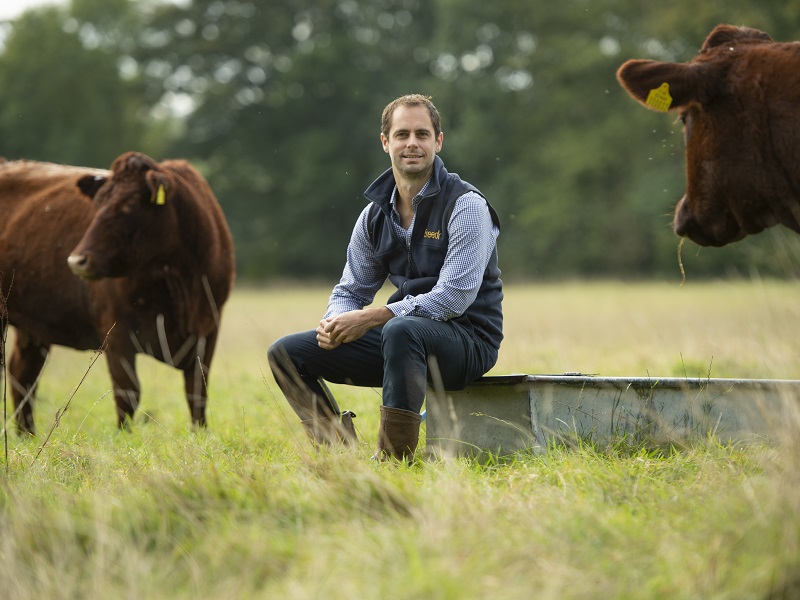The livestock industry is facing significant change in the next five to 10 years, with the collision of environmental and net zero targets, new trade deals and reduced Basic Payments.
While at first sight that may seem daunting, it offers tremendous opportunities, and farmers are more than capable of overcoming such turbulence, according to speakers at the Oxford Farming Conference.
“New supply chains are needed, with farmers at their heart,” explained Ian Wheal, co-founder of the precision livestock app Breedr. By taking more control of the supply chain, ensuring two-way feedback from fork to farm, and using new technology and genetics, farmers can significantly improve efficiencies. “All sustainability comes with commercial sustainability, and by using data there’s a big opportunity to improve both farm productivity and carbon footprints.”
According to Phil Stocker, chief executive of the National Sheep Association, basing management decisions on real farm data is key. “The top producers’ output is 60% higher than the bottom producers’, with similar costs – these are really significant variables which can be addressed.”
And boosting output does not have to come at the expense of the environment. FAI Farms in Oxfordshire has transformed its livestock and grazing management, with fantastic results. “We are finishing much more quickly with fewer inputs,” said Clare Hill, regenerative agriculture director at FAI Farms. “We still farm the same land with the same animals, we’ve just had to change the way we think.”
Facing drought in summer and flooding in winter, the farm moved from set stocking to mob grazing – with cattle housed over winter – to the current system of year-round regenerative grazing with longer restorative rest periods. “We knew that change was needed. We have to do something fundamentally different to protect our planet,” said Ms Hill.
Under the new system the animals graze over winter, growing fast, and the land is more resilient to weather extremes. Plus, it’s reducing the farm’s carbon footprint, something which meat buyers are demanding. “Small tweaks can have a big impact.”
Phil Bicknell, head of business development at CIEL, said the focus on net zero, sustainable and high welfare farming will only increase over the next decade. “Today’s high standards are effectively tomorrow’s baseline. But incremental gains can deliver win-wins; actions to improve business performance can also help your environmental impact.”
Farmers should consider undertaking a carbon audit now and make plans to reduce their footprints – while also benefiting the bottom line, said Mr Bicknell. “Use science and data to inform your decision-making. There is no shortage of innovation and technology to help; despite all the uncertainties and challenges the livestock sector is in for an exciting time.”
Of course, any new technology has to be practical and easy to use, otherwise farmers won’t adopt it, added Mr Wheal. “Some 60% of our users previously recorded everything on paper – and new supply chains won’t happen overnight. It’s vital that we support farmers through this transition to the new and inspiring world of farming.”




